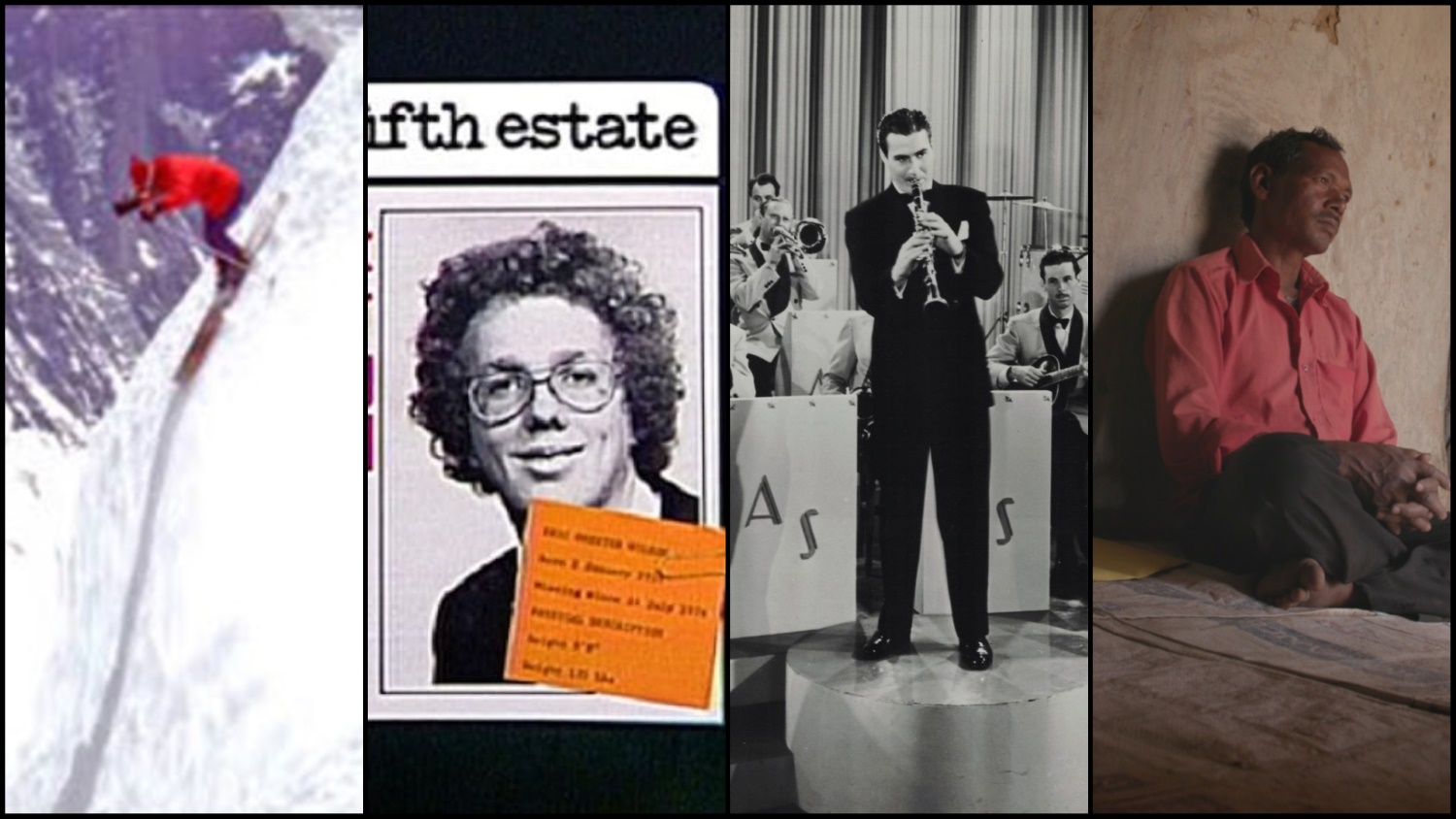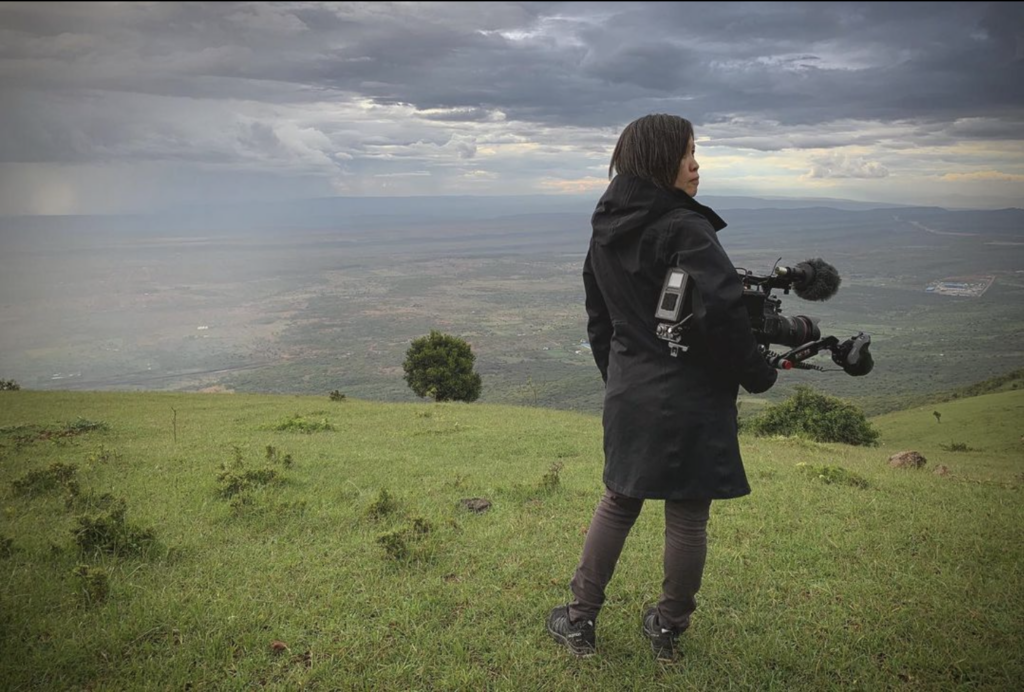The 96th Academy Awards are just a few weeks away and it’s sure to be a big night for Canada’s nominee To Kill a Tiger. The nomination marks 37 years since an all-Canadian film was nominated in the Oscars’ Best Feature Documentary category, although a few Canadian talents have been nominated (and won!) in the interim for U.S. docs or co-pros, including director Daniel Roher (last year’s winner Navalny), Ina Fichman (Fire of Love), and Michael Donovan (2003’s winner Bowling for Columbine). Canadian docs have a long history at the Oscars, especially in the shorts category where Churchill’s Island won the inaugural award in 1941. (Canadian Ben Proudfoot is nominated in the shorts category this year for The Last Repair Shop.) If you want to catch up on a history of made-in-Canada Oscar nominees, here is a list of homegrown nominees and winners for Best Documentary Feature. (Years noted reflect the U.S. release year for which the film was nominated. In some cases, the Canadian release year may differ.)
1954
Guy Glover was born in London, England but his family immigrated to Canada in 1913. He became a senior producer and administrator at the NFB and was nominated for The Stratford Adventure. This documentary goes behind the scenes and shares the story of how the small Canadian town of Stratford created its own Shakespearean theatre and festival. John Drainie narrates this doc starting from the initial ideas, to getting approval, building the sets, hiring talent and putting on a show. This film really shares the whole process of this theatre–and features Douglas Rain, who voiced HAL in 2001: A Space Odyssey.
The Stratford Adventure, Morten Parker, provided by the National Film Board of Canada
1966
Tom Daly, Canadian film producer, director and head of Studio B at the NFB was nominated for Helicopter Canada. This doc gave the audience a panoramic view of all 10 Canadian provinces, and was shot using a helicopter flying over the country. Many gorgeous landscapes were shown with narration by Stanley Jackson, including the Niagara Falls, the Badlands of Alberta and St. Lawrence River. The film was shot and directed by Eugene Boyko, and he spent 540 hours on a helicopter for this doc. Another honourable mention of Daly’s work was The Living Stone, as it was also nominated in 1958 for Best Documentary Short.
Helicopter Canada, Eugene Boyko, provided by the National Film Board of Canada
1975
We have a winner! Canadian cinematographer, producer, and director F.R. “Budge” Crawley won for The Man Who Skied Down Everest. This film, directed with Bruce Nyznik, reveals the story of Yuichiro Miura, a Japanese skier who zipped down Mount Everest. Crawley bought the footage taken from this adventure and used excerpts of Miura’s diary to narrate the story. Miura reached record speeds sliding down the mountain at 150 kilometres per hour and almost had a fatal accident. This film will keep the audience immersed with the beautiful mountain landscapes, narration from his diary, and thrill seeking shots of Miura going down the slope. Watch the film for free on TUBI.
1976
Donald Brittain, film director and producer with the NFB, was nominated for Volcano: An Inquiry into the Life and Death of Malcolm Lowry. This documentary, directed with John Kramer, shares the depiction of author Malcolm Lowry. Through interviews of people who loved and hated Lowry, old photographs, words of Lowry spoken by Richard Burton and beautiful shots from four countries, this documentary pays homage to the author and considers how much his worked consumed and tormented him. Audiences get to understand the mind of this author and the life he had before his mysterious “death by misadventure.”
Volcano: An Inquiry into the Life and Death of Malcolm Lowry, Donald Brittain & John Kramer, provided by the National Film Board of Canada
1977
Tony Ianzelo, Canadian director and cinematographer, was nominated for High Grass Circus. In this film, Tony Ianzelo and Torben Schioler followed and captured the Royal Brothers’ Circus. They follow them through various activities behind the scenes like moving the circus, setting up tents, practicing their acts, putting on show makeup, and earning a living. It really reveals how circuses used to be run, as there aren’t many going on today. Another honourable mention of Ianzelo’s work was his nomination in 1976 for Best Documentary Short Film for Blackwood.
High Grass Circus, Torben Schioler & Tony Ianzelo, provided by the National Film Board of Canada
Another nomination in 1977 went to Harry Rasky, Canadian documentary film director. He was nominated for Homage to Chagall: The Colours of Love, a documentary about Russian artist Marc Chagall. Rasky speaks with Chagall at the age of 90, about his life, things he loves, and how they play a significant role in his paintings. Many of Chagall’s works and exhibition spaces are shown in this film, which features the narration of James Mason. It is a very colourful film, to represent a very colourful man like Chagall.
1979
Canadian filmmaker Paul Cowan earned a nomination for Going the Distance. This film is all about the Commonwealth Games and follows eight athletes, including four Canadians, as they compete for gold. Cowan gives background information about each athlete who is highlighted in this film, and even captures them training before the big event. During the games, each athlete is recorded as they push themselves like never before in hopes of getting the best score. Audience reactions and voiceover narration add to the excitement.
Going the Distance, Paul Cowan, provided by the National Film Board of Canada
1982
It’s another winner for Canada! The second Best Documentary Feature Oscar for a Canadian doc went to Just Another Missing Kid by late filmmaker John Zaritsky. The film, originally produced for CBC’s The Fifth Estate, is a feature-length investigative documentary. It looks into the disappearance of Ottawa camper Eric Wilson, who was ultimately murdered by hitchhikers he picked up. The film was controversial for its use of re-enactments, which have since become standard in documentary. Watch the film in full via the CBC.
That same year, Canada had a second documentary feature nominee that found the Academy’s favour with a bit of dramatic license: After the Axe, which earned nominations for director Sturla Gunnarsson and producer Steve Lucas. The film is a rare case of docufiction nominated in the documentary category, as it used people from the business field to act in a drama about executives and managers being fired with characters drawn as composites of real people.
After the Axe, Sturla Gunnarsson, provided by the National Film Board of Canada
1986
Brigitte Berman was born in West Germany but moved to Canada in her childhood, and became Canada’s third winner in the category for the music doc Artie Shaw: Time Is All You’ve Got. Berman shares the story of talented clarinettist Artie Shaw from his childhood all the way to stardom. This is shown throughout the documentary by interviews from friends, other artists, and Shaw himself as well as a mixture of archival material. Long kept from the public for years following its win, the film is considered a template for great music docs. This film is not available online to view, but you can read about the new restoration and more about the film here and enjoy some Artie Shaw in the meantime. Keep an eye out for the film at festivals, rep cinemas, and TIFF Film Circuit as the restoration makes the rounds. Fun fact: Artie Shaw represents a rare tied in Oscar history. Berman’s film won alongside Down and Out in America, directed by Lee Grant.
2023
Nisha Pahuja was born in New Delhi, India but moved to Canada and spent eight years making the current nominee To Kill a Tiger. This film shares the story of Ranjit, a father and farmer in Jharkhand, India who demands justice for his daughter was after she was sexually assaulted. Pahuja observes the conversations between women and men in Jharkhand, and the recurring issue of women being assaulted in the country. Ranjit and his daughter have the courage not many people display to confront the issue. This film has won many awards including the Amplify Voices Award for Best Canadian Feature at TIFF and three Canadian Screen Awards, and is very moving.
To Kill a Tiger, Nisha Pahuja, provided by the National Film Board of Canada












